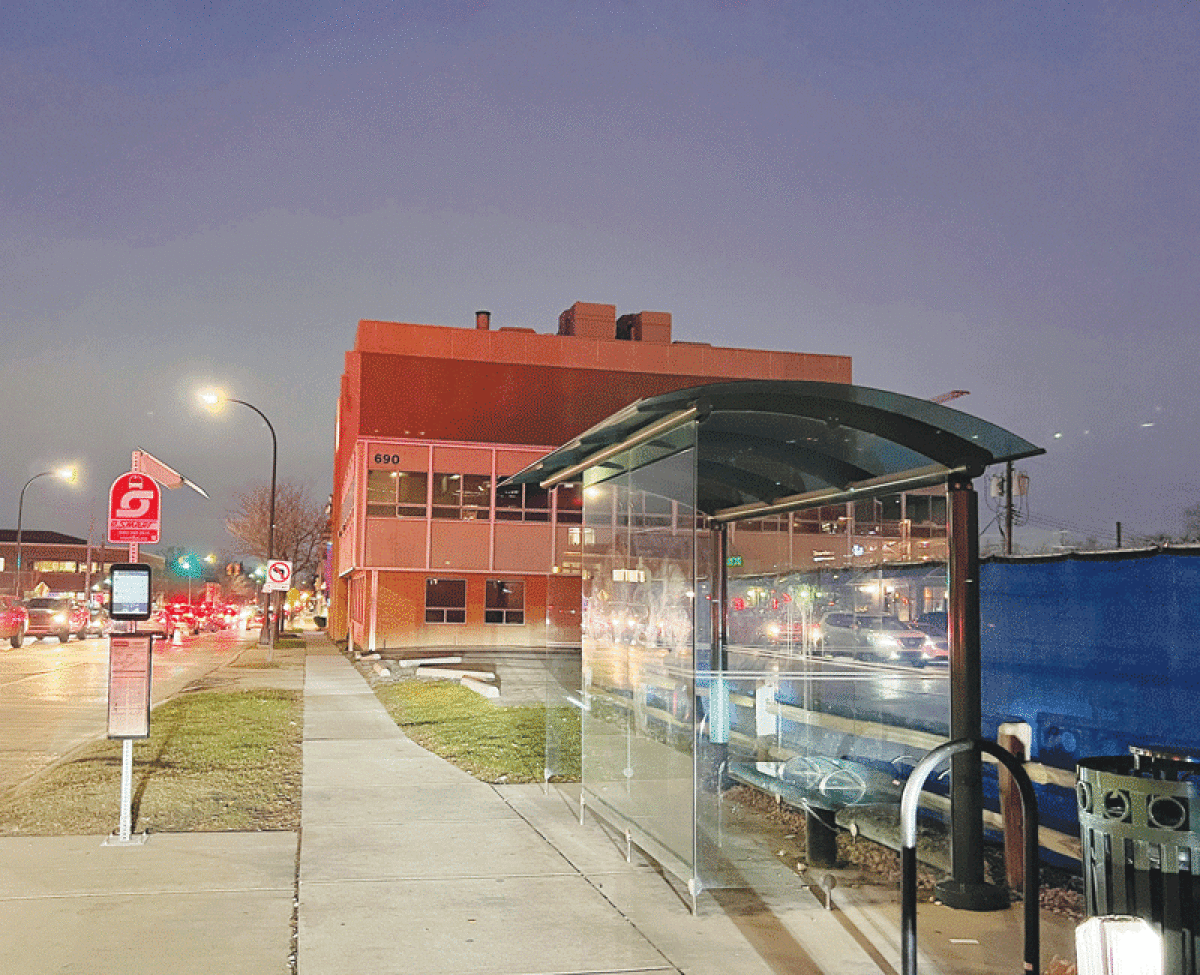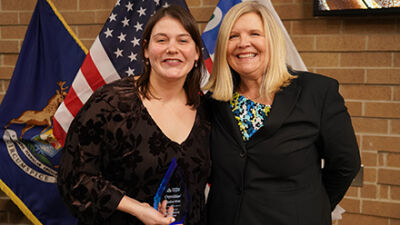BLOOMFIELD HILLS — On Nov. 8, voters in Oakland County approved a new countywide transit tax, which requires residents to pay into a 0.95 mill collection, which is 95 cents for every $1,000 of taxable value of a home, for 10 years.
For communities such as Birmingham that already offered SMART services, taxes will decrease from the current 0.9765 mill to the new 0.95 mill. Communities that did not opt-in previously will now be paying that as well.
Countywide, 336,901 residents voted for the millage, with 253,095 residents opposed.
In Bloomfield Hills, the measure passed 685 to 683 votes in Precinct 1, and 574 to 479 votes in Precinct 2.
“I am very thankful to the voters of Oakland County,” David Woodward, Oakland County Commission chairman, said. “Because of them, we’re moving the conversation from whether or not people should have access to transit to a conversation about how do we make transit better for everyone and everywhere.”
The previous millage allowed each Oakland County community to opt-in or out of Suburban Mobility Authority for Regional Transportation services. It was levied in 24 Oakland County communities, including Birmingham, Franklin, Beverly Hills, Bingham Farms and Bloomfield Township.
However, Bloomfield Hills opted out of this millage since it was originally proposed in 1995.
Bloomfield Hills and SMART
When the topic of the SMART millage was discussed in 2015, there were commissioners on both sides of the argument to either opt in or out of the agreement.
Some were in support of SMART because they believed millennials and seniors might be interested in public transportation.
On the other side of the argument, others believed the community was facing other priorities at the time that resources should be directed to instead. Some said the cost greatly outweighed the benefits.
The board ended up voting 3-2 against adding a request for a millage to support the bus service.
However, now that this millage has passed, the option to opt out is no longer available.
What happens now
Despite the city’s history of opposing it, when Bloomfield Hills residents arrived at the polls, a majority voted for the Oakland County Transit millage. The results showed that a total of 52% of Bloomfield Hills voters were in favor of the millage.
“The majority of Bloomfield Hills residents voted in favor of the millage. The first tax collection for the millage is included in this Winter tax bill. Later this month, my staff and I will join a meeting with Oakland County to discuss the next steps in this process. At this point, I do not have enough information to comment further, but I am looking forward to learning more,” City Manager David Hendrickson said in an email.
Prior to the passing of the transit millage, SMART buses would drive right through Bloomfield Hills, since there were no stops.
Since they can no longer opt out of these services, stops will be added along the route. Since the route is already existing, adding stops should be an immediate action made early into the new year, officials said.
Early on in the year they also plan to make sure that SMART, the North Oakland Transportation Authority, the Western Oakland Transportation Authority and the Older Persons’ Commission are at the base level of funding to support their current operations.
However, further expansions may take a little longer to execute. Woodward said the main things they need are money, drivers and vehicles. They have the money as a result of the millage, so now their focus is on getting drivers and vehicles.
Woodward said they are trying to acquire as many vehicles as they can as quickly as possible to meet the expected transportation needs of the community.
Via an email, SMART provided details about some of the specifics that come with the millage passing.
One of the areas addressed is when public transportation services will begin in communities that previously opted out.
“There aren’t any schedules for the previous opt-out communities at this time,” SMART stated. “We are working with the county to develop a public engagement plan that will be presented to the community and we look forward to every opportunity to receive public feedback. … SMART will conduct extensive public engagement to talk with communities about the type of service needed and this will shape the creation of schedules.”
The email also stated that SMART is responsible for creating and disseminating route and schedule information through printed and technological distribution channels.
SMART is also responsible for the creation and implementation of bus stops in communities that previously opted out, once a public engagement plan is created, according to the email.
As for a timeframe, SMART stated, “After public engagement concludes, we will work in collaboration with Oakland County to develop a timeline to share the finished strategy with the public as soon as possible.”
At some point, Woodward anticipates that an official Oakland County transit office will be formed, which will include a staff to help facilitate contracts and develop policy for deploying resources across the county.
“January, next year, we envision to have the contracts approved with the local transit agencies – SMART, as well as the Older Persons’ Commission (in Rochester), North Oakland Transit Authority and Western Oakland Transit Authority, to maintain everything they’re currently doing, and provide some resources to allow for quick expansion,” Woodward said.
“We’re working with our transit partners to try to get their hands on as many vehicles as possible, so that we can procure them,” Woodward said. “Supply chain issues, just like the auto industry, also impacts bus vehicles. Larger vehicles take a little bit longer in the procurement process to get, to order and then to actually have them. And then just like every industry across the country, labor challenges to get the employees to do this is going to take some time. All these agencies are implementing different strategies to bring in more drivers, have them trained, and get them doing the service, so I expect substantial growth … over the course of the year.”
With the millage passing, it is estimated that $66,163,000 will be collected in the first year, with the expenditure of revenue from the millage to be subject to oversight by the Oakland County Board of Commissioners and to independent audits.
“We took action to place it on the winter tax bill, so the revenue from that will be incoming in February,” Woodward said. “How millages are funded, that’s pretty quick, but February seems like it’s a long ways away.
 Publication select ▼
Publication select ▼


























